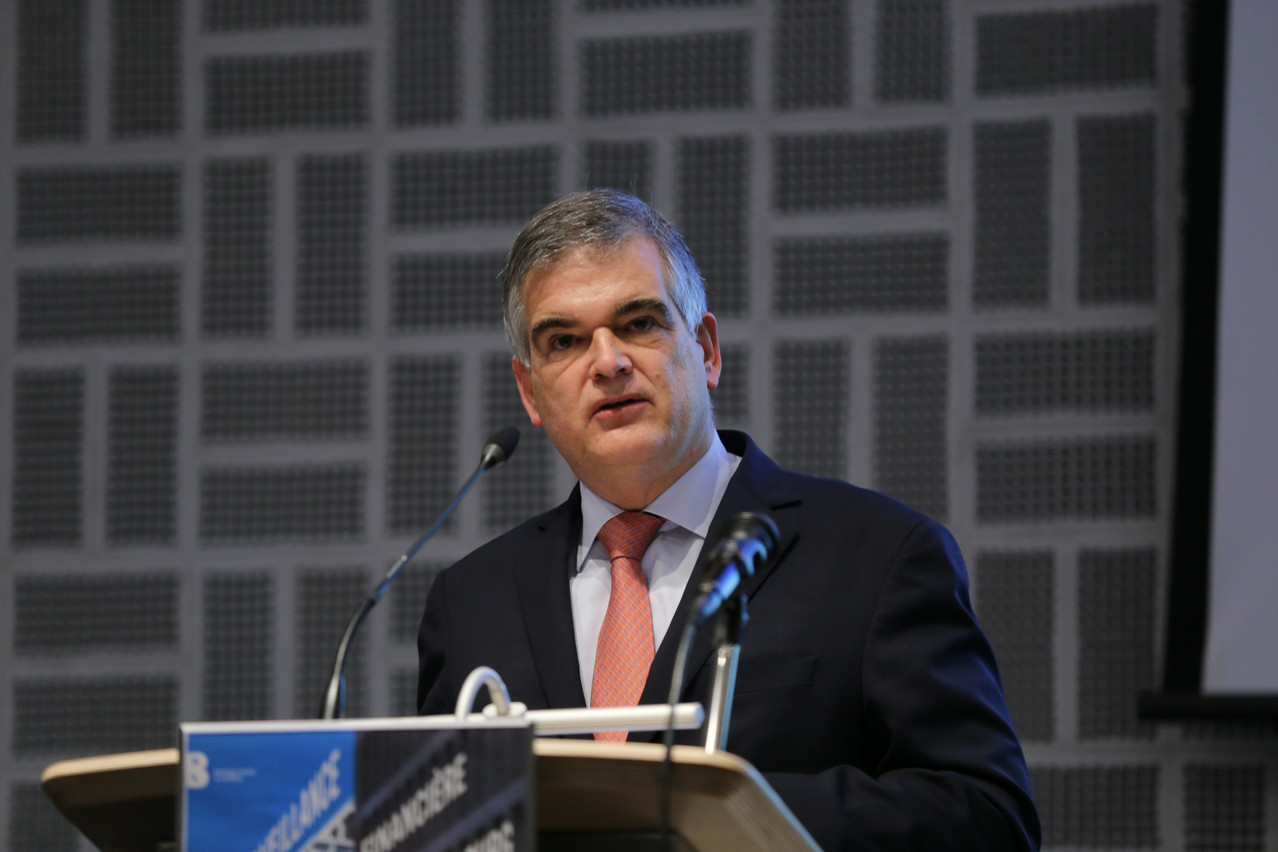Only 61 of Luxembourg investment fund compartments--out of roughly 15,000 domiciled in the grand duchy--are heavily exposed to the Russian market, , director general of the Luxembourg Financial Sector Supervisory Commission (CSSF), said.
Marx was speaking at the Association of the Luxembourg Fund Industry’s European Asset Management conference, held in Kirchberg, on Tuesday.
According to the CSSF’s daily surveys, redemptions have been frozen for 41 of those 61 fund compartments, a higher number than during the initial few weeks of the covid crisis, he said. The underlying assets are untradable or are trading at a hefty discount, which is obviously a “concern” for those investors. However, the regulator has not seen “other liquidity situations”, which did emerge in March 2020.
Marx said the 61 funds had 10% or more exposure to Russian securities. Altogether Luxembourg funds had €18.2bn exposed to Russia, with roughly two-thirds in equities and one-third in bonds. (.)
Marx cited EU sanctions against Russian interests when he reminded fund firms and service providers that “all players” need to play a role in enforcing the measures. “It’s your own reputation” and “the reputation of Luxembourg” at stake, he intoned. He would hate to read media reports in the future about sanctioned investments that the finance ministry and CSSF had not already known about, he stated.
Sustainable finance
Greenwashing--claiming that investments are environmentally responsible when in fact they are probably not--is a worry. Marx conceded that there was “no set definition” of what is and is not greenwashing, but “I think we don’t need this.” Firms making greenwash claims are in the best case engaging in “misrepresentation” and in the worst case it “could be misselling”.
The “hopefully final” version of regulatory technical standards for the EU’s Sustainable Finance Disclosure Regulation have been published, Marx noted. He expects the twice-delayed rules will come into force on 1 January 2023.
In his comments, he responded to criticism of the EU green investing rules, which many in the industry have said are unclear and incomplete. Marx said his advice to fund firms was: “don’t spend too much time on what isn’t perfect... regulators will not expect you to do the impossible.”
“Focus on what is clear and what is required,” mainly identifying data sources and making use of the information that yields, he added.
Regulatory review
Marx commented on the European Commission’s current “targeted review” of the Ucits (retail fund) and alternative investment fund (for professional investors) rules. The main red flag has been potential changes to the rules on delegation and substance, which allow different functions to be carried out in different countries at the same time. The commission has proposed limits on how many functions can be “delegated” to other business units or to service providers outside of a fund’s home country, which is extremely common for Luxembourg-domiciled funds. This focus on “quantitative vs qualitative” parameters are “not helpful”, Marx said.
He then turned to the review of the EU’s Eltif fund rules, which were meant to boost investment in infrastructure, but have been underutilised. The proposed reform would open up the category to some retail investors. Marx said that “in principle, we welcome” the changes. However, he was mindful that retail investors would need to be educated on how redemptions work for this type of fund. That is because most Eltifs are closed-ended funds that individual investors may not have used before.
Digitalisation
The CSSF is “technologically neutral”, Marx commented when asked about digital assets. He saw a massive difference between retail and institutional investors moving into crypto assets. Ucits funds should remain blocked from investing in cryptocurrencies, he said. In his view: “A cryptocurrency is not a currency.”
He was less concerned about alternative funds directly investing in crypto assets, but noted that funds and service providers do need to apply for prior authorisation.
As for the tokenisation of financial instruments by financial outfits themselves, “huge infrastructure changes are necessary,” but that is “not a hurdle as far as the CSSF is concerned.”
Gender diversity
“I don’t like quotas,” but Marx said they should be implemented in the financial sector. He noted that only one in five Luxembourg bank board members were women, women only chair 7% of bank boards, and one in three bank boards have no women members at all. These figures are a “disaster”. He did not provide figures for the funds sector.
“Old, white men dominate the world regardless of performance,” Marx stated. “It will not really change without coercive measures and unfortunately, we will need in our industry quotas.”
